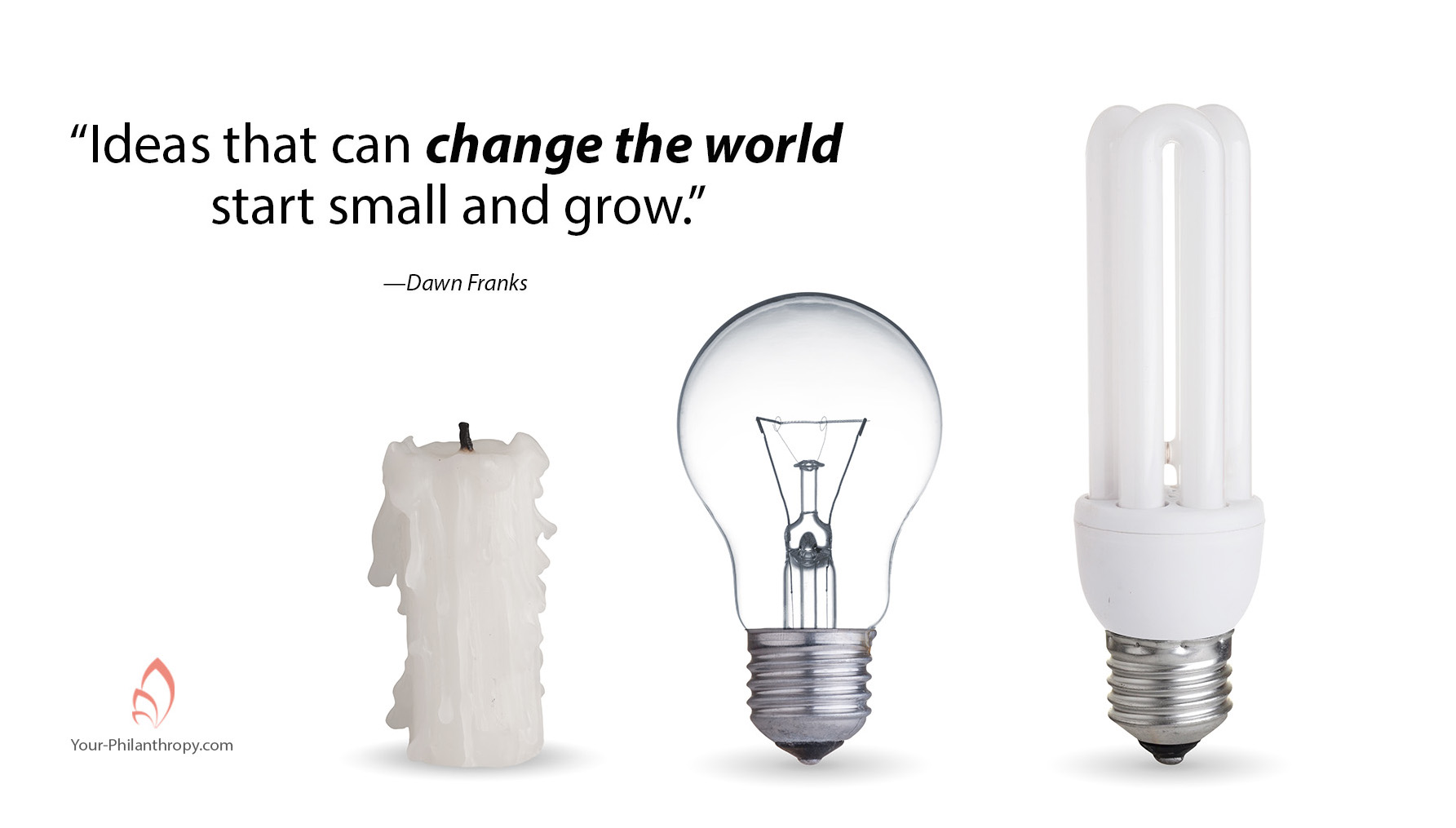Can you change the world in a few minutes a day? A common question asked by teachers, writers, philanthropy advisors, and so on is, “if money is no object, what would you do to change the world?”
It sounds like an innocent enough question, straightforward in purpose. The quick answer that follows suggests the causes and issues that most often touch the heart. Occasionally, when I ask the question, the answer is specific enough to sense seeds of thought forming tiny seedlings of action.
Of course, amongst the seedlings are always weeds that look a lot like doubt and fear. Besides the weeding the seedlings need water and fertilizer, and that looks a lot like direction and planning.
Okay, enough of the gardening analogy.
Here’s the point —ideas that can change the world start small and grow. Changing the world is one choice, one action at a time. The size of the change requires thoughtful planning, engaging others to join the work, and sizeable determination.
I’ve just completed A Billion Hours of Good, Changing the World 14 Minutes at a Time by Chris Field. It’s an easy read but comes with a considerable challenge. Field urges every one of us to find fourteen minutes every day to do something good for others. He makes the point that if we all do something good for just fourteen minutes every day it would amount to more than a billion hours of good.
The result would be a changed world.
The Challenge We Must Own
Field grants the reader a gift of fourteen minutes a day and suggests ideas for what to do differently to capture the minutes. But he doesn’t stop there. Field is insistent on doing good with the captured minutes, impacting both the receiver and the giver. How could we ask for more than what’s good for you and me?
Here’s how he frames the challenge:
When we tackle the at-times difficult task of finding compassion within ourselves and then use that compassion to propel us into being more courageous, we are building something that will far outlast any program or plan. This matters because if we just follow someone’s rote directions, we won’t take ownership of this crucial life change.
There it is, the challenge to tackle what’s difficult, find compassion within, be courageous and build something. If you stop reading right now, you will miss the best part.
Change for good brings about a “crucial life change.” But, it is not just change that affects someone else because change for good can’t be done without affecting ourselves.
Like any good self-help author, Field tackles the subject of finding a natural starting line while facing down inner fears. He clarifies that showing up is more than half the battle and that failing is part of every venture — great and small. And to continue, we simply must get back up!
I like A Billion Hours of Good because he doesn’t stop after sharing inspiring examples, encouragement that we too can do it, and feel-good pats on the back.
Concrete Steps for Real-World Change
He launches into concrete steps we can and should take in our fourteen minutes of good to change the world.
Meaningful change in your neighborhood, community or the world requires courage and compassion. The secret to fostering both is to tune into the personal creativity that goes dormant for most in childhood.
Now you may argue with me that you’re not very creative. I understand the resistance because I grew up with a creative mother — musically inclined, a poet, seamstress, writer, and a painter — by comparison, my gifts of creativity seem lackluster. Thus, I’ve never considered myself creative.
Yet, I’ve started many things during my career. What a surprise to discover that start is borne from creativity.
Field says, “creativity lives inside each of us, is an incredibly powerful tool and currency, and is the conduit of turning our courage and compassion into meaningful change.”
A Few Concrete Ideas
Go beyond having a big, audacious goal. Don’t even say the words big and audacious.
- Become as much of an expert about whatever it is you want to change. Of course, you won’t be “the” expert, but when you talk about your idea, others will know they can trust you and the idea.
- Define what you want to accomplish— the outcomes— what you want to change.
- Add your “why.” It’s the heart and soul of the change you seek. (Simon Sinek’s Start with Why is a terrific guide for this part of your work.)
If you have an idea, A Billion Hours of Good is a great book to motivate and encourage you in a journey to change the world that goes far beyond what you can do alone. (Check out more of my recommended reading here.)
Don’t forget the best part — you can do it all in fourteen minutes a day. How can we pass up a deal like that?
Like it? Use it. Share it. Comment below.


Love it! Everyone can identify something they are passionate about, fear of failing is perhaps the one thing that stops most from taking action. Courage is seriously underrated. Thank you, I will pick up the book today.